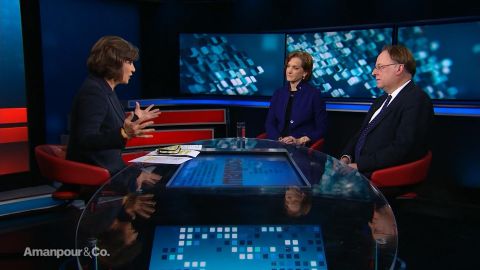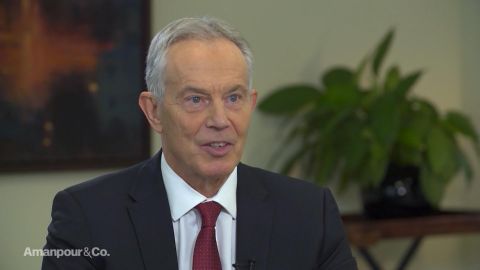Read Transcript EXPAND
ANNE APPLEBAUM, AUTHOR, “TWILIGHT OF DEMOCRACY”: So, first of all, it’s interesting to remember where the idea of the BBC came from. It was a response to the kind of cacophony that was originally created by radio. And remember that the first beneficiaries of radio, the people who really learned how to use it, were Hitler and Stalin. And the BBC was an attempt to create a broadcaster that would reach everybody and that would kind of create public trust, and where you could create a space to discuss issues that was somehow neutral. And the BBC’s charter, which is pretty unique in the world, although people have tried to copy it, tries to guarantee that there is this neutral space where we can have democratic debate and everybody can be involved and there’s BBC all over the country. This function of a neutral public space is now disappearing or is already gone in many democracies. You don’t have a — you have instead the deep polarization of the media. You have people choosing one set of facts or another set of facts. And this is making it really hard to have anything that resembles a kind of neutral democratic debate. And this is what’s so interesting, as the BBC is admired all over the world for exactly that, because it’s been this neutral space. And the fact that that is now disputed and that British politicians are now using this — attacking the media, which is now a familiar tactic of authoritarians everywhere else, is really, deeply worrying for British democracy.
AMANPOUR: And because people point to the BBC as being exactly as Anne points out, and as you know because you worked there for so long, and as the world knows, because it’s a jewel in the crown that gets exported to the United States everywhere, BBC programs, BBC news programs, dramas, other such things, it has, by its constitution and its charter, prevented the kind of hyperpartisanship that we have seen in the United States, for instance. Now do you feel that might be at risk? I mean, one of the main anchors, the BBC main anchor, wrote: “The real purpose of the attacks on us is to undermine trust in institutions which have been sources of stability over many decades.“
MICHAEL CRICK, FORMER BBC POLITICAL CORRESPONDENT: I do think it’s at risk. And we’re not just — it’s not just the BBC that is involved here, because there are commercial channels in this country, ITV, Channel 4, Channel 5, and they are obliged to have the same neutrality and impartiality as the BBC. But, of course, we live in a world now where anybody can set up their own television channel, put it on the Internet. They can — and they can have any political point of view they want. And, increasingly, people do not get their news, their journalism from either the BBC or the traditional commercial broadcasters in this country. A lot of young people get their news off the Internet and one way or another. And in those circumstances, it’s easier and easier for the politicians to bypass the BBC and ITV, and say, right, we will appeal through this Web site or Twitter or whatever, this video system or Facebook.
About This Episode EXPAND
Former Prime Minister Tony Blair joins Christiane Amanpour to examine the deeply partisan politics rocking the U.K., screenwriter and director Greta Gerwig tells Michel Martin about her adaptation of “Little Women” and Michael Crick and Anne Applebaum discuss tensions between the U.K.’s Conservative Party and the British media.
LEARN MORE


